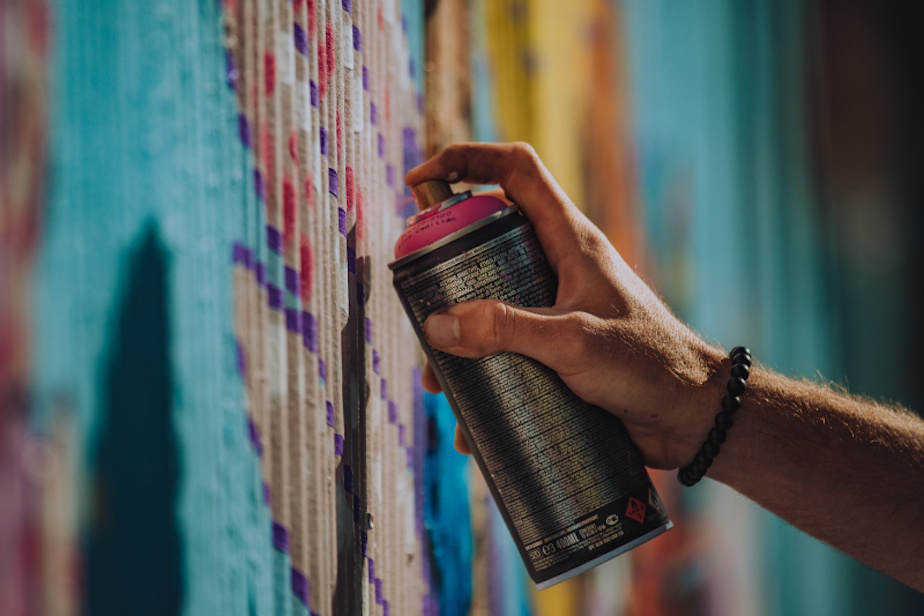Artists call Seattle's plan to tackle unwanted graffiti 'ethically tricky'

Update notice: This story was updated on Wednesday, Nov. 23 to include new information about the proposed Many Hands Arts Initiative failing to pass the Seattle City Council's budget vote.
There are a lot of different elements that build a city’s artistic identity.
There are museums, theaters, concert halls and galleries.
There's also the art that covers our streets – free for anyone to see – like murals and sculptures on the street, and spray paintings on bridges, buildings, and underpasses.
But what's the difference between the mural we see outside a light rail station and the graffiti across the street? What is public art and what is a nuisance?
It’s a question Seattle Mayor Bruce Harrell and the city are wrestling with through a proposed initiative.
The Many Hands Arts Initiative would put city departments and communities across Seattle in dialogue to combat unwanted graffiti on public and private property.
Sponsored
Royal Alley-Barnes, the acting director of the city's office of arts and culture, says she supports the artistic value of street art, but emphasizes that graffiti that is racist, misogynist, or anti-Semitic needs to be washed away.
Alley-Barnes said the graffiti that was painted on a prominent mural of Dr. Martin Luther King Jr. in the Central District is an example of the type of graffiti the mayor and her department want to target.
"Once it gets into all of those negative racist activities, once it gets into disrespect, and once it gets into violent premonition of violent behavior and violent statements, not acceptable,” Alley-Barnes said.
Street artists say the Many Hands Initiative presents an "ethically tricky line" around what is and what isn't considered an appropriate form of public art.
“The grant program was specifically written for organizations, so individuals can't even really engage in it," said Paul Nunn, a visual artist with the nonprofit Urban Works. "And there's no legitimately recognized organization of people practicing graffiti."
Sponsored
Even though the city is targeting hate speech and racist language, Nunn says there has been cases where respected graffiti artists have had their work erased.
Under current Washington state law, tagging graffiti on a public or private property without the owner's consent is classified as a gross misdemeanor .
Along with addressing how the city will clean up graffiti, Mayor Harrell says he'll be working with the city attorney and the Seattle Police Department to address enforcement.
"Let me be clear, many of them are destroying property, I can't mince words," Harrell said. "They're not hurting anyone physically, and I do not want to see violent arrests. I want to see de-escalation in these conversations, I want everyone to be treated as one would in a human rights city. And I need my officers to know that that any other approach is unacceptable."





